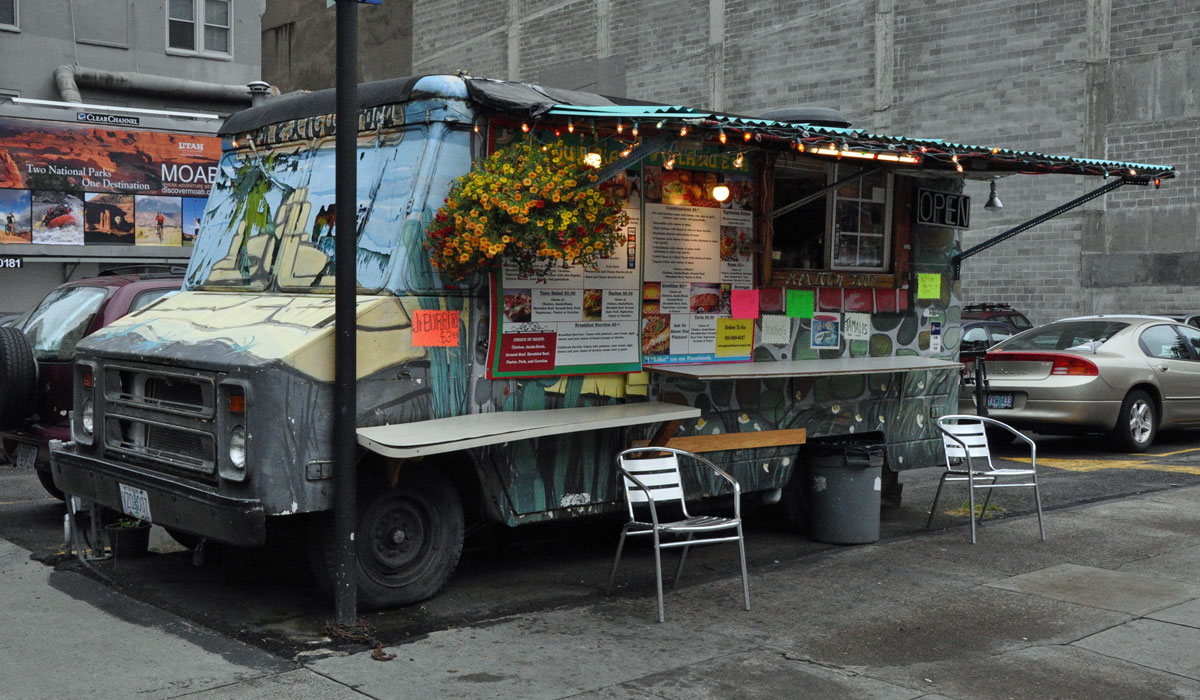In the U.S. alone, there are more than 4,000 food trucks on the street, and the industry is booming, reaching nearly $1 billion in annual revenue. What some speculated as a “trend” is clearly here to stay. Food trucks deliver exactly what customers want: they meet consumers where they are—whether it’s a festival, a brewery, or a park—and offer several different types of cuisines at affordable prices.
However, while the upside is big for entrepreneurs and restaurants that want to expand into the market, there are a number of risks that come along with operating a food truck. In addition to coming up with a menu, finding the right locations, and creating a process to fulfil orders quickly in a small space, there are also risks like auto accidents, food poisoning, equipment damage, and injuries to workers. As businesses take steps to start a food truck, the risks cannot be pushed to the side.
The biggest risks food trucks are facing every day
Without proper coverage, food trucks leave themselves exposed to scenarios and lawsuits that could easily end their business before it even takes off.
Vehicle-related dangers
No matter how careful food trucks operators are, no on can control mother nature. Natural disasters are common and outdoor elements such as hail, snow, lightning, heavy rainfall, and wind disturbances all pose a major threat to food truck businesses. The damages incurred from these events are costly and can have a long-term effect on operations by forcing temporary closures, which means there could be massive amounts of foregone revenue.
Car Accidents
According to Federal Motor Carrier Safety Administration (FMCSA), more than 4,000 lives are lost in crashes involving large trucks or buses each year. And compared to other automobiles, the fatality rate for large trucks is 50 percent higher than normal vehicles. Road safety applies to all, but food trucks are more susceptible for these kinds of accidents that a typical car.
Operational Risks
Although safety precautions must be practiced at all times, work-related accidents like slips and falls, smoke inhalation, burns, wounds, and heat stroke can still happen from day-to-day operations. In a workspace like a food truck, there are a lot of accidents that can arise in smaller spaces.
Food Spoilage and Fire Hazards
Unlike traditional restaurants, food trucks don’t have the convenience of spacious food storage. A single handling mistake may cause health-alarming issues such as food contamination and food poisoning. Additionally, the constant motion and jarring of food truck can affect the structural integrity of the systems in place from fryers to refrigerators.
Food truck insurance—What coverage is recommended?
To ensure complete protection and reliable peace of mind, food truck operators need to make sure they have insurance in place that will safeguard the financial assets of their businesses. Although services and products differ, there are insurance policies tailored made to cater to the specific needs of food truck businesses.
Commercial Auto
One of the most important policies for food truck owners is commercial auto, which should be purchased as soon as the truck is acquired. It offers coverage for bodily injury, personal injury, and physical damage caused by accidents involving the business automobile.
General Liability + Commercial Property
Providing protection from third-party bodily injury, property damage, and personal or advertising claims, general liability is the foundation of all business insurance. Paired with commercial property, it protects the physical assets of the food truck such as tools and equipment needed for operation. These two insurance policies can be bundled in one convenient package called Business Owner Policy (BOP), and most insurance carriers will typically offer them at a discounted rate when they are bought together.
Workers Compensation
Protecting employees from work-related injuries and accidents by covering medical fees as well as lost wages, workers compensation is mandatory in most states. For the employer’s part, this policy also defends them from expensive and damaging lawsuits related to negligence.
Umbrella Insurance
Umbrella insurance offers an extra layer of protection to ensure there are no gaps between policies. It provides an additional level of financial security when all resources from existing policies have been reached or depleted. It also increases limits so food truck owners don’t have to pay excess liabilities.
How much does food truck insurance cost?
Since the food truck industry is large and business models vary, premiums depend on several factors. Most insurance companies will determine the cost of the policy based on the type of business, geographic location, type and age of equipment, replacement cost versus the actual cost of equipment, number of employees, declared coverage amount, and deductibles.
General liability typically costs between $500 to $600 annually for a $2 million limit, and Workers Compensation ranges from $1,400 to $2,500 for a $1 million limit. Additionally, Commercial Auto is offered from $1,200 to $3,000 per year depending on the limits and coverage, while a BOP varies from $500 to $1000 annually for a $2 million policy limit.
Insurance policies play a huge role in the food truck industry. Obtaining the right policy ensures complete defense against all unfortunate events making businesses ready for growth, expansion, and success.













